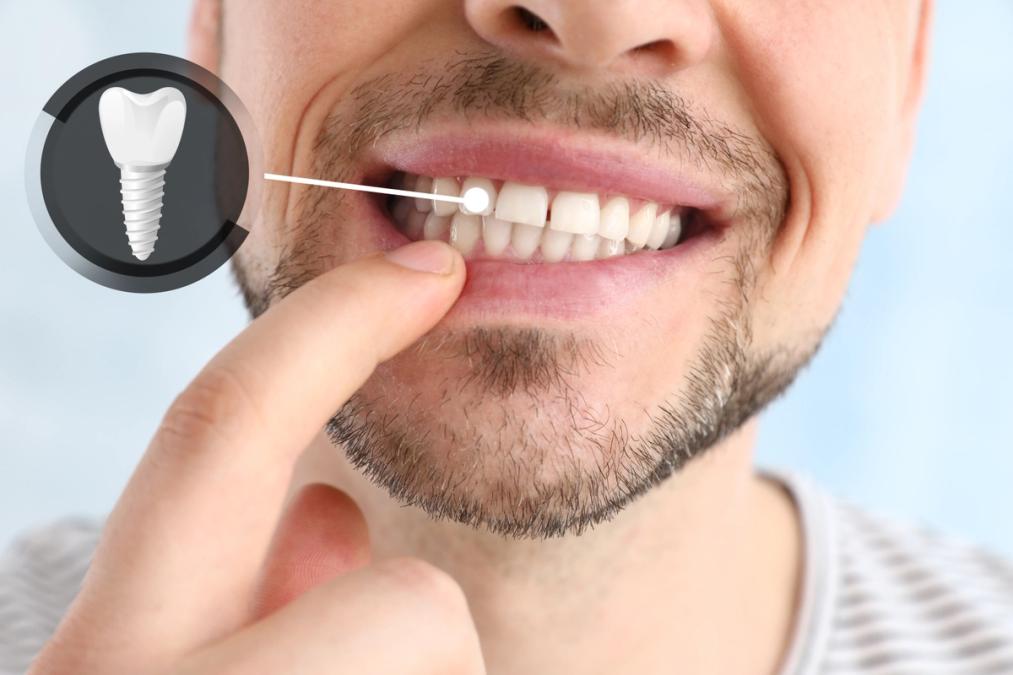Dental Implants: The Standard for Replacing Missing Teeth
Published on Jul 3, 2025 | 6 minute read

What if you could replace a missing tooth with something that feels, looks, and functions just like the real thing? Not a temporary fix. Not something you take out at night. A true replacement—root and all. That’s the power of dental implants.
Dental implants are widely recognized as the most advanced solution for tooth loss. At Summit Family & Cosmetic Dentistry, we use dental implants to help patients in Summit, NJ, restore their smiles, chewing power, and confidence—all with a permanent, natural-looking result.
What Are Dental Implants?
Dental implants are small titanium posts that are surgically placed into the jawbone to act as artificial tooth roots. Once the implant bonds with the bone, it becomes a strong foundation for a custom-made crown, bridge, or denture.
In simpler terms: implants are the closest thing modern dentistry offers to a second chance at a natural tooth.
Each dental implant typically consists of three parts:
- The implant – a titanium screw placed in the jawbone
- The abutment – a connector piece that links the implant and the restoration
- The crown – the visible tooth that’s crafted to match your smile
Whether you’re missing one tooth or an entire row, dental implants can be adapted to your needs.
Who’s a Good Candidate for Dental Implants?
Here’s the great news: most healthy adults are good candidates for dental implants. You may be a strong candidate if you:
- Have one or more missing teeth
- Have healthy gums and sufficient bone density
- Don’t smoke or are willing to stop (smoking impairs healing)
- Are in good overall health with no uncontrolled chronic conditions
Even if you've experienced bone loss, you may still qualify through bone grafting procedures or alternative placement techniques.
The best way to find out? A consultation that includes a digital scan of your jawbone to assess your unique anatomy.
The Dental Implant Process—What to Expect
Many patients are surprised by how streamlined the dental implant process is. Here’s a general breakdown:
- Consultation & Imaging – We evaluate your oral health, medical history, and bone density.
- Implant Placement – A small surgical procedure places the implant into the jawbone.
- Healing Phase (Osseointegration) – Over 3–6 months, the bone grows around the implant, anchoring it securely.
- Abutment Placement – Once healing is complete, the abutment is attached to the implant.
- Custom Restoration – A crown, bridge, or denture is placed on top for a natural, functional finish.
Some patients may even qualify for same-day implants, depending on the situation.
Benefits of Dental Implants: Backed by Research
Dental implants aren’t just convenient—they’re clinically proven to be effective and long-lasting.
According to the American Academy of Implant Dentistry (AAID) and the Journal of Dental Research:
- Dental implants have a success rate of over 95% after 10 years
- Implants help prevent bone loss by stimulating the jawbone
- Implants restore over 90% of natural chewing ability
- Implant-supported teeth don’t rely on neighboring teeth for support, unlike bridges
Implants also protect your facial structure. When teeth are lost, the jawbone naturally shrinks. Implants help prevent this collapse, maintaining your profile and bite alignment over time.
Why Implants Are Better Than Bridges or Dentures
Let’s compare the alternatives:
- Bridges: Require grinding down healthy neighboring teeth for support. They last 7–10 years on average and don’t stop bone loss.
- Dentures: Removable. Often shift or cause sore spots. May require adhesives and offer less chewing power.
- Implants: Fixed in place. Don’t affect surrounding teeth. Preserve bone. Feel and function like natural teeth.
While the upfront cost of implants may be higher, their durability and long-term performance often make them more economical over time.
How to Care for Dental Implants
One of the best parts of dental implants? They’re low-maintenance. Brush, floss, and rinse just like you would with natural teeth. Still, regular checkups are essential to make sure everything stays healthy beneath the surface.
We may recommend a special floss or water flosser to help clean around the implant posts, especially for bridges or implant-supported dentures.
Are There Risks?
Like any procedure, dental implants carry minimal risks—such as infection or implant failure. But with proper placement, good oral hygiene, and ongoing care, complications are rare. Our team uses advanced 3D imaging to plan placement with extreme precision and minimize risks.
Dental implants are more than a tooth replacement—they’re a lifestyle upgrade. They restore your ability to eat, speak, and smile freely, without the fear of slippage or pain. And once they’re in, they feel so natural, most people forget they ever lost a tooth to begin with.
Tired of hiding your smile or struggling with missing teeth? Call Summit Family & Cosmetic Dentistry at 908-522-0077 or visit us at 33 Overlook Rd STE 402, Summit, NJ to schedule a consultation and explore how dental implants can bring your smile back to life.
